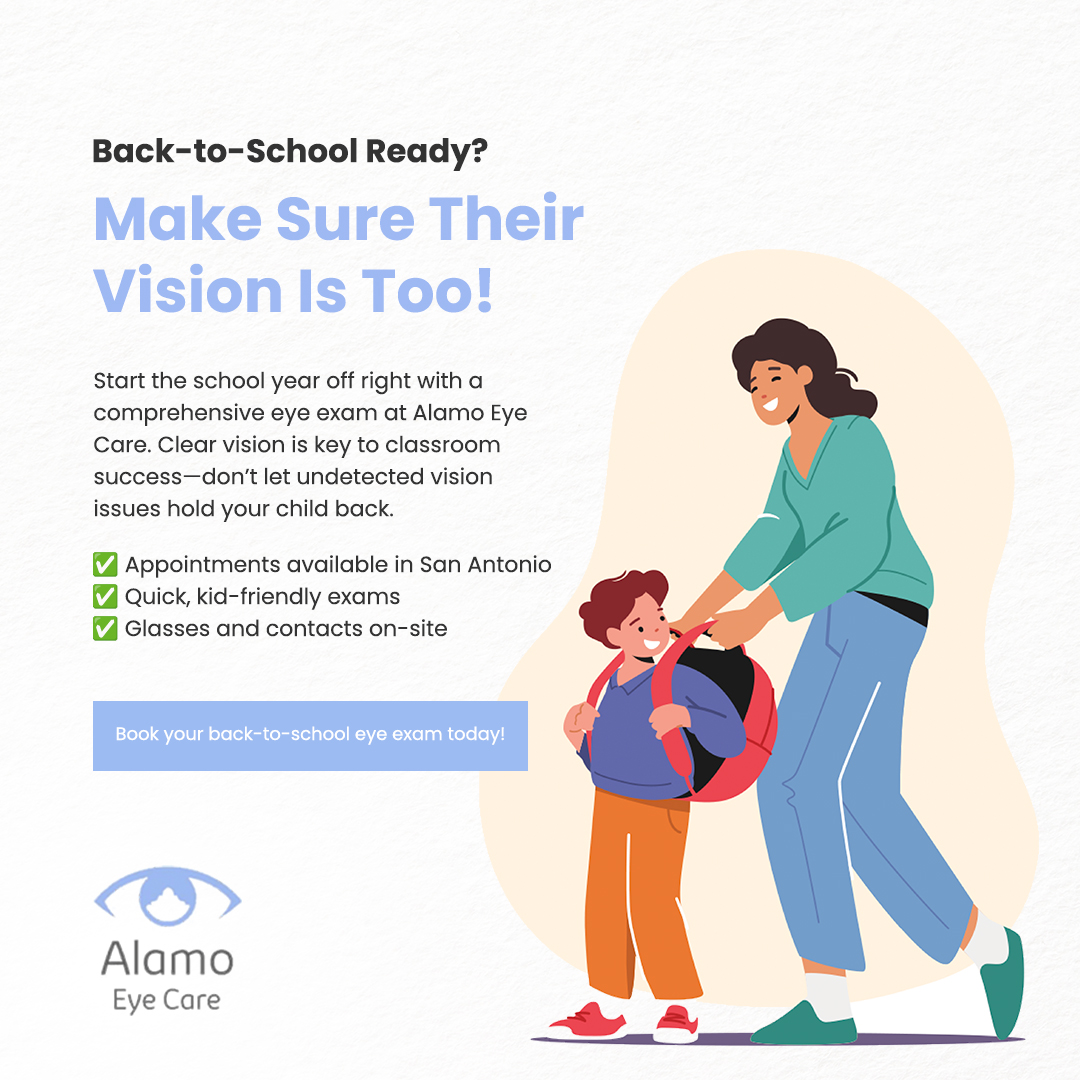Macular Degeneration Q&A
If you experience distorted vision or reduced central vision in one or both eyes, you may have macular degeneration, a leading cause of vision loss in people 60 and older. At Alamo Eye Care in San Antonio, Texas, Melanie Frogozo, OD, FAAO, FSLS, Swati Kumar, OD, FAAO, and their expert team diagnose and treat macular degeneration to prevent gradual vision impairment. Call the office at the first sign of vision problems or book an appointment online today.
What is macular degeneration?
Macular degeneration is an age-related condition that destroys your central vision. It’s caused by a thinning of the macula (part of your eye’s retina) and impairs your ability to drive well, read, and complete other everyday tasks. However, early detection and treatment can help save your sight.
What are the different types of macular degeneration?
The two main types of macular degeneration are:
Wet macular degeneration
Wet macular degeneration occurs when abnormal blood vessels grow under the macula in your eyes. These blood vessels can leak fluid and blood, which quickly damages the macula and causes blurry vision.
Dry macular degeneration
Dry macular degeneration happens when light-sensitive macula cells slowly break down over time, and if left untreated, you gradually lose central vision. The dry type of macular degeneration is more common than the wet type.
What are the symptoms of macular degeneration?
Common symptoms of macular degeneration include:
Distorted vision
Blurry vision
Reduced central vision
Seeing straight lines as bent
The need for brighter lights when reading
Poor night vision
Lower-intensity bright colors
Problems recognizing faces
Blurry spots or blind spots in your vision
Macular degeneration can affect one or both of your eyes. The dry type often progresses slowly, while wet macular degeneration usually causes sudden vision changes and more severe vision loss.
What are the risk factors for macular degeneration?
While anyone can develop macular degeneration, some factors boost your risk of experiencing it. Examples include:
- Being over age 60
- Family history of macular degeneration
- Being Caucasian
- Obesity
- Smoking
- High blood pressure
- Heart disease
Complications that can occur with untreated macular degeneration include central vision loss, depression, visual hallucinations, and rapid vision loss.
How does my eye doctor diagnose macular degeneration?
To find out if you have macular degeneration and which type you have, your eye doctor discusses your medical history and symptoms. Then, they complete a comprehensive eye exam and vision testing, as well as imaging procedures when needed.
What are common macular degeneration treatments?
While there’s no cure for macular degeneration, common treatments that can slow the progression of the disease include:
Lifestyle changes
Lifestyle changes that help slow vision loss include eating healthy foods rich in vitamins, minerals, and omega-3 fats, not smoking, maintaining a healthy weight, getting regular exercise, and properly managing chronic diseases. See your eye doctor for routine eye exams.
Vitamin supplements
Taking high-dose antioxidant vitamins and minerals may reduce vision loss if you have or are at risk of macular degeneration.
Low vision rehabilitation
Working with a low-vision rehabilitation specialist helps you better adapt to changes in vision.
Telescopic lens surgery
Surgery to implant a telescopic lens in your eye can magnify your visual field and improve close-up and distance vision.
If you’re at risk of macular degeneration or experiencing vision changes, schedule an eye exam with Alamo Eye Care by calling the office or booking online today.






